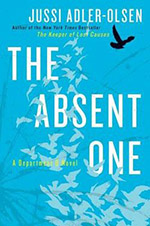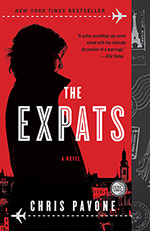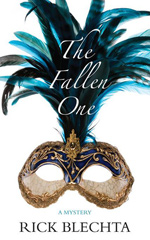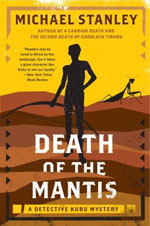Jussi Adler-Olsen: The Absent One
The Absent One, Jussi Adler-Olsen’s second novel in his gripping Department Q series, creates one of the more interesting female characters in recent fiction. While Kimmie, the “absent one” of the title, is certainly not entirely sympathetic, as Adler-Olsen draws the reader deeper into her world there are sympathetic glimmers. Explanations of her behavior. And a portrayal of an exceptionally strong woman who ultimately chooses to do the right thing.
 While that is part of this novel, this is also, like the first novel, a terrific thriller that will keep any reader glued to the page. Adler-Olsen has set up his two main characters, Carl and Assad, as a perfect yin and yang. They are the reliable and comfortable center of the novels, and in this one he’s added a third party, Rose, greeted by Carl as grumpily as he initially greeted Assad. Despite Rose’s alleged assignment of assembling new desks for their workspace, she manages to prove to Carl that she has plenty to offer.
While that is part of this novel, this is also, like the first novel, a terrific thriller that will keep any reader glued to the page. Adler-Olsen has set up his two main characters, Carl and Assad, as a perfect yin and yang. They are the reliable and comfortable center of the novels, and in this one he’s added a third party, Rose, greeted by Carl as grumpily as he initially greeted Assad. Despite Rose’s alleged assignment of assembling new desks for their workspace, she manages to prove to Carl that she has plenty to offer.






